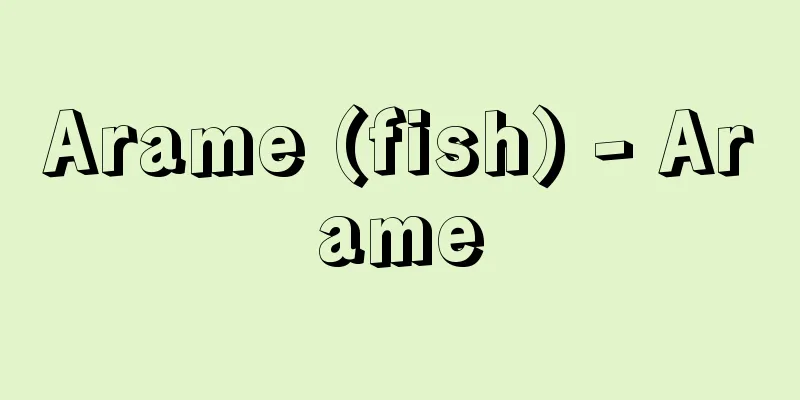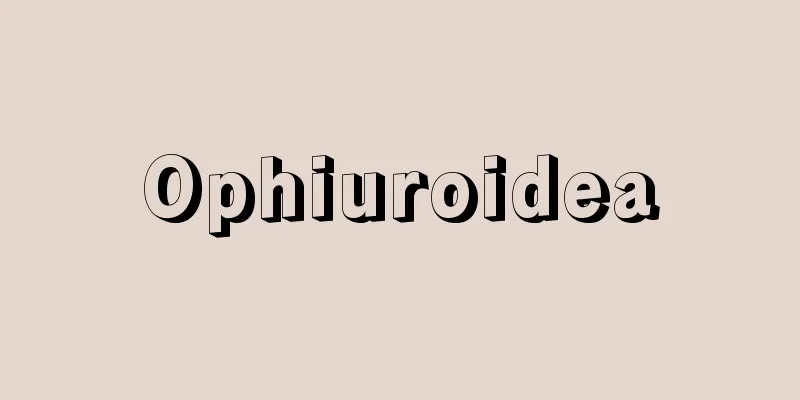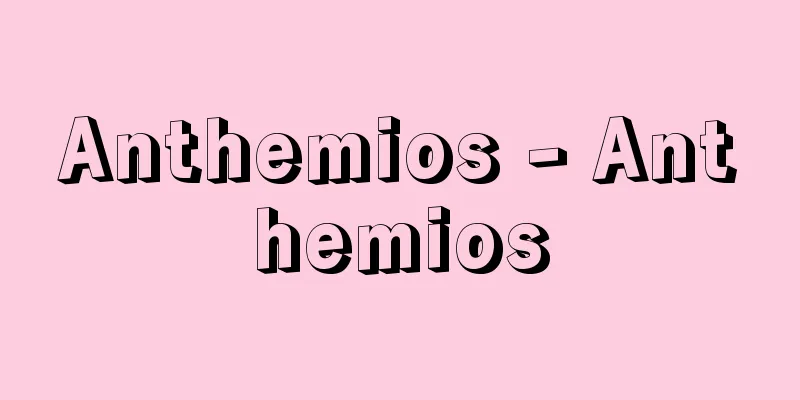Neopilina

|
…The annelids are divided into six classes, each with a very different external appearance, and the Polychaeta in particular has a wide variety of shapes due to its well-differentiated external appearance. Annelids and mollusks were thought to be closely related because their larvae are very similar, but the discovery of the Neopilina (illustration), a mollusc with a somewhat segmented body structure, led to the idea that annelids and mollusks evolved from an ancestor like Neopilina that lost its segmentation and developed a shell, while on the other hand, it developed segments, lost its shell, and became annelids. Annelids are divided into four classes: Polychaeta, Oligochaeta, Hirudinea, and Suchostometa, but there are relatively few similarities between these classes. … *Some of the terminology that mentions "Neopilina" is listed below. Source | Heibonsha World Encyclopedia 2nd Edition | Information |
|
…環形動物にはそれぞれ外形が非常に異なる六つの綱が含まれており,とくに多毛綱では外形がよく分化しているためにさまざまな形のものが見られる。 環形動物と軟体動物との幼生の形がよく似ているので両者は近縁なものと考えられてきたが,軟体動物で体に多少体節的構造が見られるネオピリナNeopilina(イラスト)が発見され,環形動物と軟体動物とはネオピリナのような祖先から体節制が失われて貝殻が発達して軟体動物になり,他方では体節が発達して殻を失い環形動物になったと考えられるようになった。 環形動物は多毛綱,貧毛綱,ヒル綱,吸口虫綱の4綱に分けられるが,これらの綱の間の類似点は比較的少ない。… ※「Neopilina」について言及している用語解説の一部を掲載しています。 出典|株式会社平凡社世界大百科事典 第2版について | 情報 |
<<: Neophron percnopterus (English spelling)
Recommend
How to attract - How to attract
A job title in the Kamakura and Muromachi Shogunat...
Alouatta caraya (English spelling) Alouattacaraya
… [Takashi Furuichi]. . … *Some of the terminolog...
Banda Aceh (English spelling)
The capital of the Aceh Special Region, located at...
Protector of the Law - Goho
A scholar of the Yogacara school (Yuishiki school...
Chionis minor (English name) Chionisminor
… [Shinji Takano]. … *Some of the terminology tha...
Lisinski, V.
...The musical culture of Dalmatia, a region faci...
Cartesian
...The former is called synthetic geometry or pur...
Tetrameles nudiflora (English spelling)
…The genus Datisca includes another species, D. g...
Ekman, FL (English spelling) EkmanFL
…Swedish physical oceanographer. Born in Stockhol...
Tongbai Mountains
Located on the border between Henan and Hubei prov...
Chauhan Dynasty - Chauhan
A dynasty in the Rajasthan region of India, counte...
Dolin, A.
…Initially simply called the Ballet Theatre, the ...
Flax spinning
...(1) Classification by fiber length: (a) short ...
Weigela praecox - Weigela praecox
…[Mr. Makoto Fukuoka]. … *Some of the terminology...
Glick, B.
… The existence of the bursa of Fabricius has bee...









